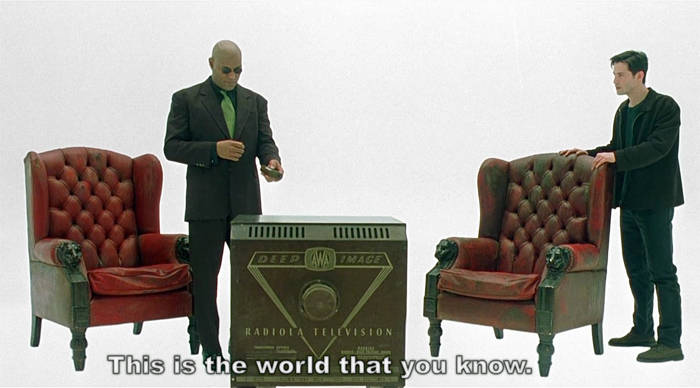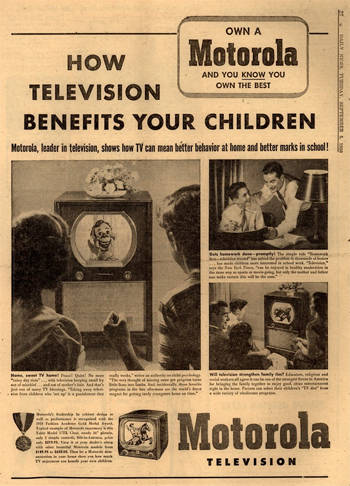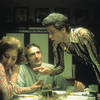Italian Americans in the Trap of Television. An Interview with Maria Laurino
As our readers know, the MTV reality “Jersey Shore” provoked a wave of anti-defamation prostests from several Italian American organizations. When the John D. Calandra Italian American Institute of CUNY announced a colloquium on “Guido: An Italian American Youth Style” (January 21st, 10am) some exponents of the Italian American community objected that even holding such a colloquium may be considered an “anti-Italian” act, and called to boycott it. In its continuing search for a dialogue, i-Italy decided to offer this controversy a forum where all positions can be articulated—including unofficial, dissonant voices.
Here we meet Maria Laurino,* a writer and an adjunct professor of creative writing at New York University. A former chief speechwriter to NYC Mayor David Dinkins and a staff writer for the Village Voice, her books include Were You Always an Italian?, a national best-selling memoir about ethnic identity.
What do you think of the way ethnicity—and Italian Americans in partular—are portrayed on American television?
I haven't seen this particular MTV show but from what I have read it reminds me of other sitcoms and reality shows with Italian-American characters. One of the problems in portraying ethnicity on television is that television, in general, tends to caricature reality; it likes showing things that are over the top. The media, and especially television, tend to see everything in broad strokes. Television—and especially reality TV shows—are not interested in nuances as a novelist or an essayist would be. The reason is simple: the media have their own agenda, they have to get the ratings up, they have to make money; they are more concerned about the marketplace than about the issues.
And one of the difficulties in portraying ethnic groups is that all these groups have been here for a long time, and when you get, for instance, to the fifth generation of Italian Americans, it is so much harder to get at the nuances of their identity. In the past ten years or so, I think the whole culture has become cruder and less interested in nuances, and so the portrayal has become even less sophisticated. Just as more and more Italian Americans become assimilated, their ethnic identity is portrayed in a way that actually reflects a very small group of people... but nobody is really interested in a more nuanced work.
Some in the Italian American community think that such misrepresentation of ethnic identity in the media is something that regards Italian Americans more than other groups. We often hear that a show like Jersey Shore would have never been mad about Jews or African-Americans
.
I don’t think so. A couple of months ago, I went to a talk to present my newest book in Staten Island, and there were many questions about this. "Why do they portray us this way?" people would ask. I responded that this is not about Italian Americans—it is about the media, it's about "reality show." If you read newspaper accounts of the making of reality shows, you see how participants are denied sleep, offered lots of alcohol—all to get them to do something outrageous. And people are ready and willing to do this just to get on television. There was nothing “ethnic” about the “Balloon Boy” spectacle. Ethnic groups will always be appealing to broadcasters because they can fall back on certain images and stereotypes. I think that the media would do anything to improve their ratings to earn money, so they push the boundaries of taste. And it seems that the American people are responding, and even fighting for their fifteen minutes of fame. In that way, I think the culture has shifted a lot in the past few decades.
Talking about the "Guido phenomenon", its roots can be traced to the character of Tony Manero, played by John Travolta in Saturday Night Fever
. So, again, we have an interesting interplay between Italian-American reality and its representation...
There is something fascinating about the relationship between Italian American identity and the image of Tony Manero. When I was researching my book, Were You Always an Italian?, I came across an article by Nik Cohen, a British journalist who wrote the feature story about young people from Bensonhurst in New York magazine that the film Saturday Night Fever was based on. Years later he published a confession in New York magazine that the feature story he wrote was made up. This was supposed to be a piece of journalism about Italian-Americans in Bensonhurst. He wrote that his editors wanted a certain image of Italian Americans and he went and spent some time in Bensonhurst, but he realized he could not really figure out who they were. He found that he could not make inroads into a culture he was not part of. So, based on what he saw, he created Tony Manero out of his imagination.
What fascinates me is indeed that Tony Manero is the fictional creation of an English journalist born in Northern Ireland. What is this telling us about ethnic identity? How real is it and to what extent do we just imitate what we see in films?
It's really hard to figure out because it's a bit of a chicken-and-egg question: who came first, the Guidos or the Guido portayal that someone then decided to imitate?
John Travolta was such an appealing character, an amazing dancer, a handsome man in an enormously popular movie. So many kids must have thought, "Hey, I am from Bensonhurst, I can form some sort of ethnic pride out of that — I'll act like him." They bought into that fictional creation.
You are talking about questions that do not seem to allow for easy answers, including how Italian-American identity is constructed, perceived and modified. May I assume you must be in favor of scholars and experts investigating these issues?
Of course. And I am very interested in this symposium at the Calandra Institute.
All these issues of otherness, of identity, of course, push some buttons and touch upon things that might be unpleasant. But it is very dangerous to react by not talking about them. It is only through dialogue that you are going to better understand these complex issues of ethnic identity and further the discussion. Censoring dialogue is always a dangerous act.
Why do you think this censoring attitude is so widespread among ethnic leaders in America, not just among Italian Americans? It seems that the immediate reaction to any disturbing issue is censorship. In this case we go from attempts to stop MTV from "defaming" Italian Americans to an invitation to boycott an academic colloquium about the "Guido lifestyle"...
I think this is a phenomenon that you can see all over the world. It’s the result of a sort of fervent nationalism. This kind of ethnic nationalism is only about pride and doesn’t allow for any kind of questioning or dissent. Look at the case of Ohran Pamuk, the first Turk to receive the Noble Prize for Literature. A few years ago he was brought to court for having “offended the Turkish identity" by stating to a Swiss journalist that you can’t talk about the genocide of Armenians in Turkey under the Ottoman empire. Of course we don't have trials against dissidents here in the U.S., but I think the root of the problem is the same: the notion that national pride, or in this case ethnic pride, should never be challenged.
Is there anything that can be done about these issues?
Surely not by watching television reality shows! I think Italian Americans should put an end to their obsession with their image in the television media. Everything in the media is going to be crude and there is no way you can change this, especially if you start from the wrong assumption—that this is something that just regards Italian Americans. I understand the frustration of the people who are offended by this — I am offended by these portrayals — but this is what American pop culture is becoming. If they really want to think about nuanced images of their own ethnicity—including sometimes controversial images—they should buy and read books by writers from all ethnic groups who are similarly struggling with these issues. And this includes Italian-American writers. Instead of trying to correct the media by censoring them, we should work towards giving these books and ideas much more widespread circulation.
* Maria Laurino has been contributing to i-Italy since its inception. Visit her blog "Old World, New World"










































i-Italy
Facebook
Google+
This work may not be reproduced, in whole or in part, without prior written permission.
Questo lavoro non può essere riprodotto, in tutto o in parte, senza permesso scritto.